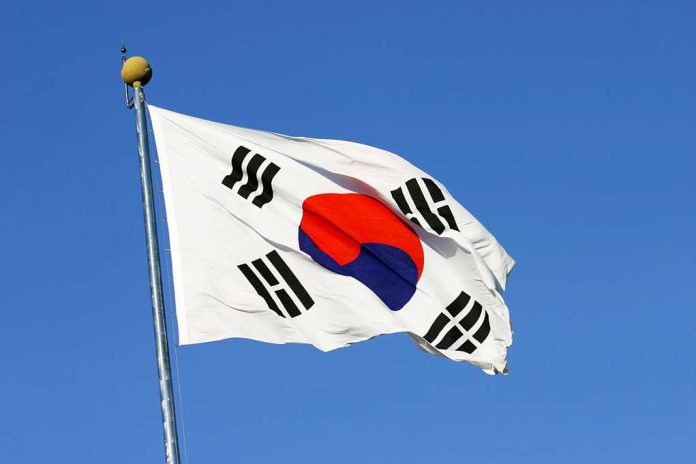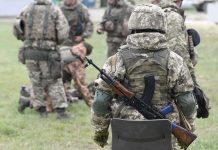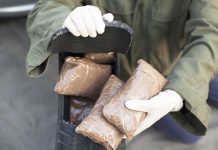
A short-lived declaration of martial law by South Korea’s President Yoon Suk Yeol has sparked a wave of public protests, deeply examining the country’s democratic resilience.
At a Glance
- President Yoon Suk Yeol faces possible rebellion charges after declaring martial law.
- The government imposed a travel ban on Yoon amidst political unrest.
- An impeachment vote did not succeed due to insufficient quorum.
- Daily life in Seoul continued, despite planned protests and strikes.
President Yoon’s Martial Law Declaration
South Korean President Yoon Suk Yeol’s recent decision to declare martial law was met with swift backlash. Accusations flew toward an opposition-controlled parliament believed to paralyze government functions and sympathize with North Korea, leading to a martial law edict that censored media and banned political activity. However, the order was rescinded merely six hours later as protests erupted, showcasing South Koreans’ aversion to any semblance of authoritarian rule.
The martial law declaration, according to President Yoon, aimed to safeguard the country’s democracy against anti-state forces. Observers noted no military abuse of power during the martial law period, but the move severely impacted Yoon’s approval ratings. The swift retraction did not dissipate the controversy surrounding Yoon’s governance, pushing South Koreans to rally for his impeachment.
🚨 𝗕𝗿𝗲𝗮𝗸𝗶𝗻𝗴 𝗡𝗲𝘄𝘀: 𝗦𝗼𝘂𝘁𝗵 𝗞𝗼𝗿𝗲𝗮𝗻 𝗣𝗿𝗲𝘀𝗶𝗱𝗲𝗻𝘁 𝗗𝗲𝗰𝗹𝗮𝗿𝗲𝘀 𝗠𝗮𝗿𝘁𝗶𝗮𝗹 𝗟𝗮𝘄 🚨
In a late-night televised address, President Yoon Suk Yeol declared emergency martial law, accusing the opposition Democratic Party of anti-state activities and… pic.twitter.com/86jlbseOfD
— Beyond the Horizon (@BehorizonOrg) December 3, 2024
Political Ramifications and Investigations
The government’s decision to impose a travel ban on President Yoon underscores the gravity of the situation, as investigations into his actions, including potential rebellion charges, are underway. The political backlash has been intense, with opposition lawmakers calling for Yoon’s impeachment. However, the motion did not pass due to a walkout by Yoon’s party, suggesting deep political divides. Former defense minister Kim Yong-hyun was detained, and Interior Minister Lee Sang-min resigned, fueling the political fire.
Prime Minister Han Duck-soo continues to manage state affairs in concert with Yoon’s party, as opposition figures remain skeptical of his authority. Despite Han’s apology to the public, many South Koreans remain wary as investigations continue. The Democratic Party’s plan to reintroduce the impeachment motion highlights the ongoing political strife.
Sustaining Democracy Amid Tensions
The recent events mark a significant point in South Korea’s democratic journey, evoking memories of past military dominance over civilian affairs. The rapid response to Yoon’s martial law declaration is a testament to South Korea’s collective commitment to uphold democratic values. South Korea’s history of military intervention remains sensitive, but the nation’s robust protests suggest that democratic ideals are entrenched more deeply than ever.
Despite the turmoil, life in Seoul stayed largely uninterrupted. While protests continue and demonstrations are planned nationwide, the strength of South Korea’s democracy endures amidst underlying political challenges. How South Korea navigates these trials will determine the future trajectory of its democratic institutions.
Veterans of the South Korean Marines have their heads shaved in protest against President Yoon Suk Yeol in Seoul. South Korea faces significant political turmoil after the president declared emergency martial law, which was quickly voted down by other members of the government.… pic.twitter.com/12fGzjr3iu
— Getty Images News (@GettyImagesNews) December 5, 2024
Sources:
- South Korea imposes travel ban on president over martial law declaration
- What to know about martial law and the impeachment vote threatening South Korea’s president
- South Korea’s traumatic history of martial law inspires resistance
















